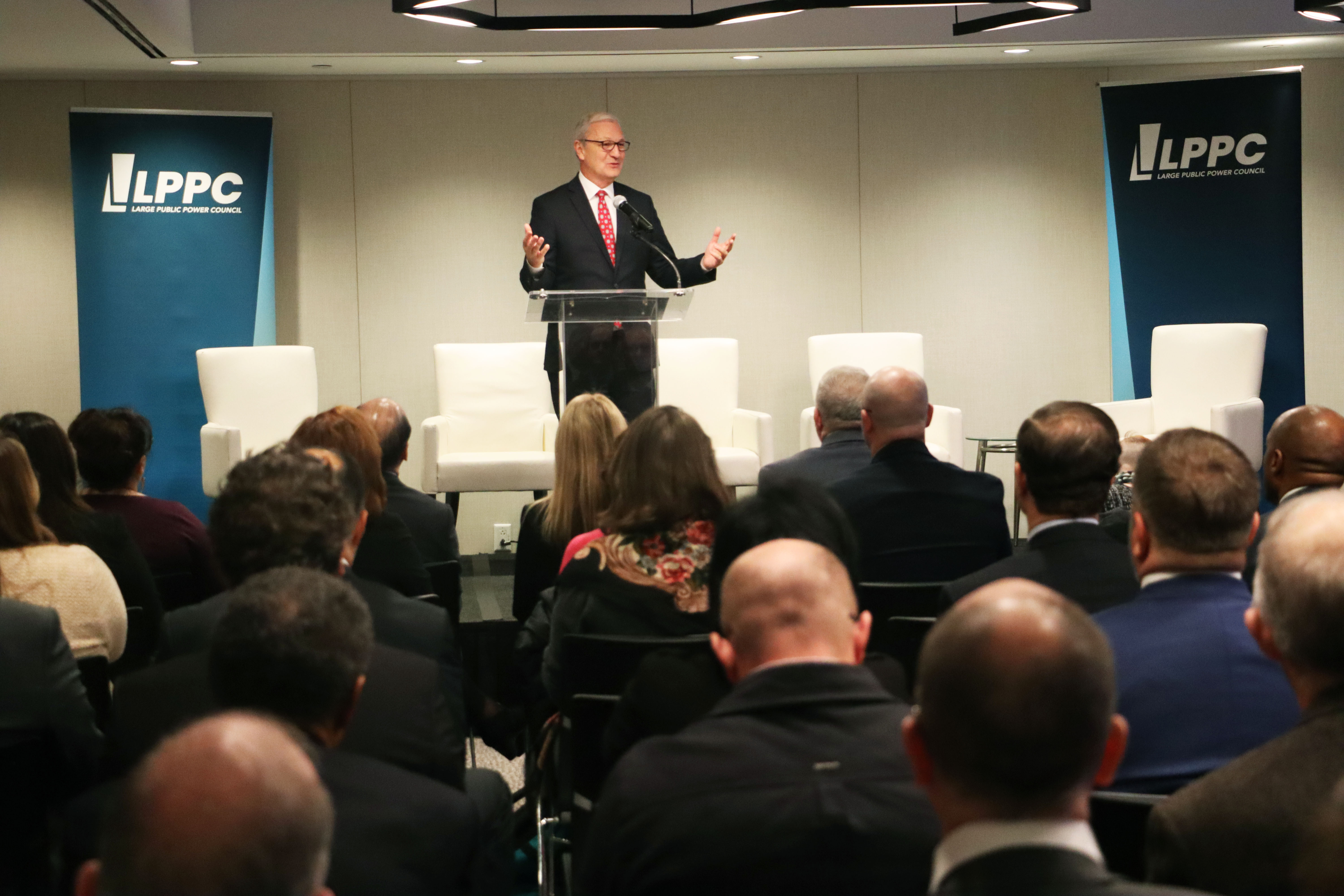WASHINGTON – U.S. Senator Kevin Cramer (R-ND), member of the Senate Environment and Public Works (EPW) Committee, was the keynote speaker at the Large Public Power Council (LPPC) Thought Leadership event. He was invited to discuss the practical implications of an energy transition, particularly on the resilience, affordability, and reliability of the grid.
Senator Cramer has utilized his experience as a former North Dakota utility regulator as Congress debates permitting and transmission reforms. Founded in 1987, the LPPC encompasses 28 of the nation's largest locally owned and controlled, not-for-profit power systems and serves roughly 30.5 million American electricity consumers.
“Whether you are an investor-owned utility or a public power provider, you have to report to your consumers. There’s a responsibility to deliver reliable, affordable electricity. I get concerned when people put the generation before transmission or even the demand,” said Senator Cramer. “If you’re on the monkey bars, you can’t let go of the rung you’re on while reaching for the next. Too often, policymakers rush to what looks good to the public, but they are extreme utopias not based in reality. An energy transition must be done responsibly, prioritizing reliability and affordability, but there can be wins for both sides of pendulum.”

Senator Cramer is engaged in ongoing debates surrounding legislative and administrative proposals to overhaul transmission policy. In September, he wrote a letter to the Federal Energy Regulatory Commission (FERC) regarding its ongoing rulemakings on transmission planning, cost allocation, and federal backstop siting authority.
In May, he penned an op-ed in the Wall Street Journal discussing the need for Congress to reform permitting in a commonsense way. Additionally, Senator Cramer wrote a letter in August to the Environmental Protection Agency (EPA) asking for the withdrawal of the “Clean Power Plan 2.0,” a proposed rule which will force the closure of coal- and gas-fired power plants.